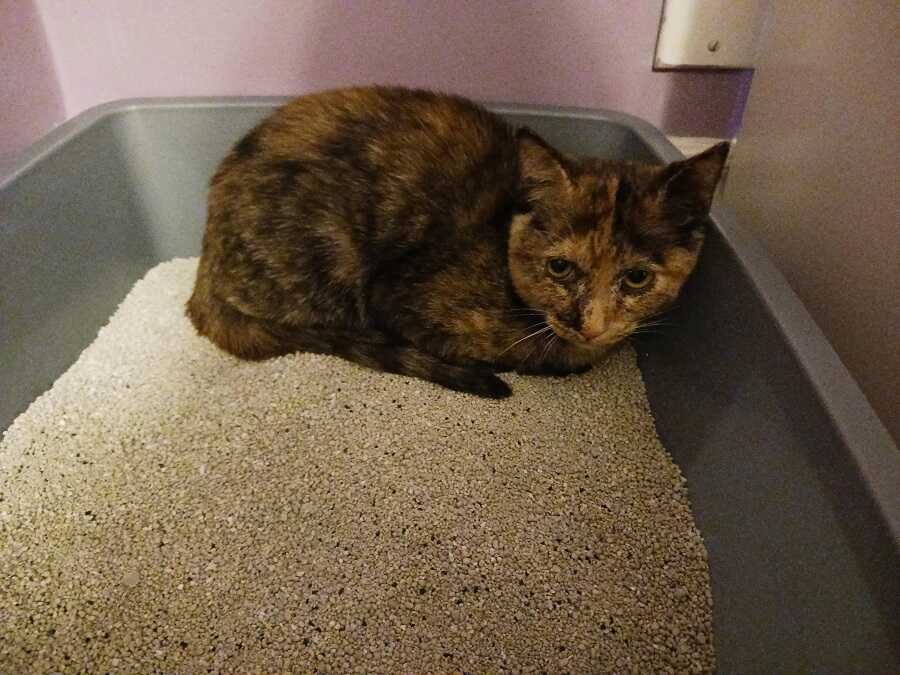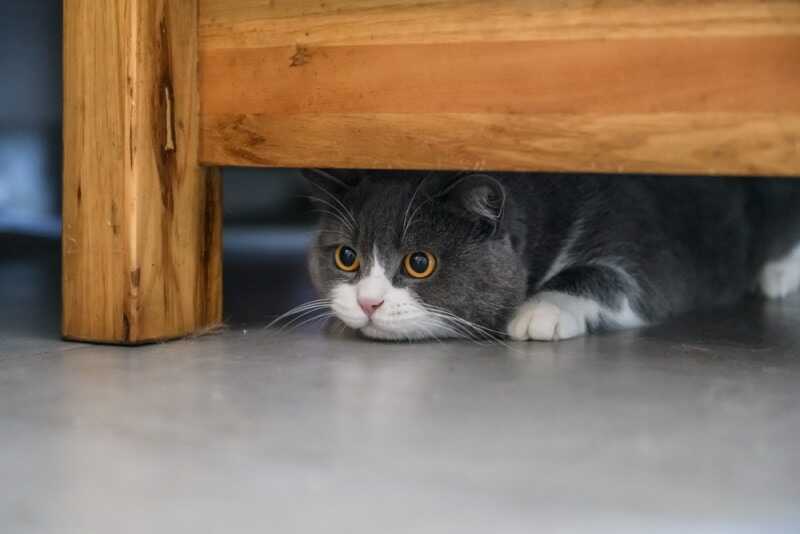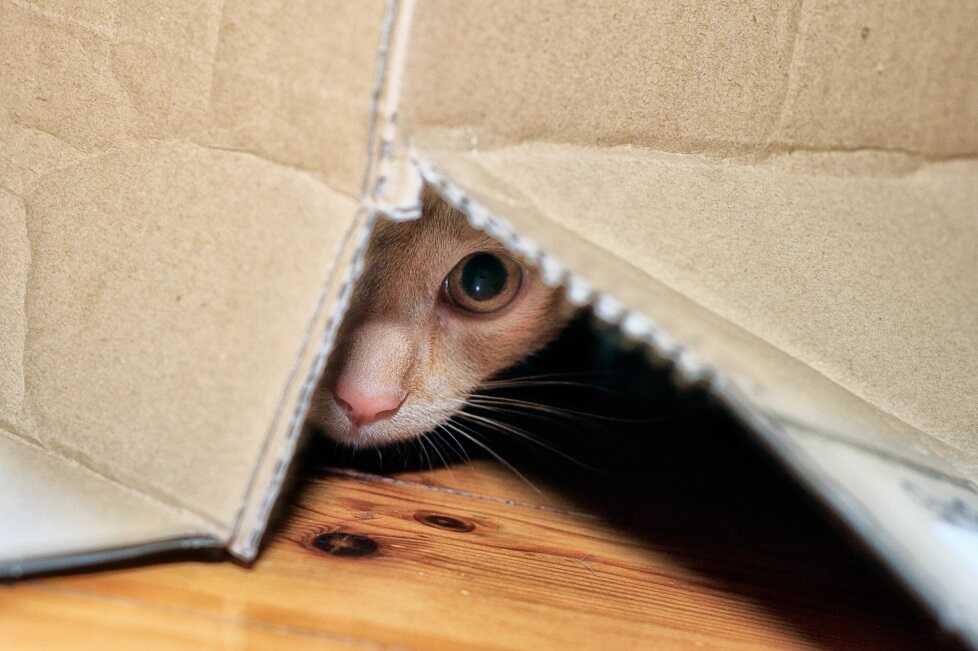If you’re a cat parent, it’s crucial to comprehend that cats express their feelings differently than other animals. Their independent nature makes it challenging to interpret their emotions.
Have you ever wondered how long a cat will hide if scared? Well, we’re here to answer that question and provide you with more insights into feline conduct. Get ready to be thrilled!
- Understanding Cat Behavior
- How Long Will a Cat Hide If Scared?
- Why Do Cats Hide When Scared?
- Signs That Your Cat Is Scared
- How to Help a Scared Cat Come out of Hiding
- Tips for Minimizing Stress and Fear in Cats
- Common Reasons for Cat Anxiety and How to Address Them
- The Importance of Providing a Safe and Comfortable Environment for Cats
- FAQs
- Conclusion
Understanding Cat Behavior
Cats have been domesticated for thousands of years, but they still retain many of their wild instincts. It’s important to understand their behavior to provide them with proper care and attention. Cats are known for their independent nature, but they still crave affection and attention from their owners. They communicate in various ways, including vocalizations, body language, and behavior.
How Long Will a Cat Hide If Scared?

Cats will hide when they are scared or feel threatened. The length of time that a cat will hide depends on several factors, including the cat’s personality, the cause of their fear, and the environment they are in. Some cats may only hide for a few minutes, while others may hide for hours or even days.
Why Do Cats Hide When Scared?
Cats hide when they are scared as a natural defense mechanism. Their instinct is to find a safe place to hide until they feel that the threat has passed. This behavior is common among cats, and it’s important to understand that it’s a natural response to fear.
Signs That Your Cat Is Scared
It’s important to be able to recognize the signs that your cat is scared. Some common signs that your cat is scared include hiding, flattening their ears against their head, dilated pupils, and a puffed-up tail. Cats may also vocalize or hiss when they are scared. It’s important to be able to recognize these signs and provide your cat with a safe and comfortable environment.
How to Help a Scared Cat Come out of Hiding
If your cat is scared and hiding, there are several things you can do to help them feel more comfortable. The first step is to provide a safe and comfortable hiding spot. This could be a cardboard box or a cat bed in a quiet room. You should also provide your cat with food and water in their hiding spot to encourage them to come out.
Try to avoid making loud noises or sudden movements that may startle your cat. You can also try to entice your cat out of hiding with toys or treats. It’s important to be patient and allow your cat to come out of hiding on their own time.
Tips for Minimizing Stress and Fear in Cats
There are several things you can do to minimize stress and fear in cats. One of the most important things is to provide a safe and comfortable environment. This includes providing plenty of hiding spots, toys, and scratching posts. You should also make sure that your cat has access to food and water at all times.
Another way to minimize stress and fear in cats is to establish a routine. Cats thrive on routine, and it can help them feel more secure and relaxed. You should also make sure to spend time with your cat every day, whether it’s playing or cuddling.
Common Reasons for Cat Anxiety and How to Address Them

There are several common reasons for cat anxiety, including changes in their environment, illness, and socialization issues. If your cat is experiencing anxiety, it’s important to identify the cause and address it. This may involve making changes to their environment, such as providing more hiding spots or reducing noise levels.
If your cat’s anxiety is related to illness, you should consult with your veterinarian. They may recommend medication or other treatments to help your cat feel more comfortable.
The Importance of Providing a Safe and Comfortable Environment for Cats
Providing a safe and comfortable environment for your cat is essential for their physical and mental well-being. This includes providing a clean litter box, access to food and water, and plenty of toys and scratching posts. You should also make sure that your cat has a quiet and comfortable place to sleep.
It’s also important to provide your cat with plenty of love and attention. This can help them feel more secure and reduce their anxiety levels. By providing a safe and comfortable environment, you can help your cat live a happy and healthy life.
FAQs
Conclusion
How long a cat will hide if scared? Understanding feline behavior is essential for providing proper care and attention to cats. Hiding is a common behavior that cats display when they are scared or feel threatened. The length of time that a cat will hide depends on several factors, including the cat’s personality and the cause of their fear.
If your cat is scared and hiding, it’s important to provide a safe and comfortable environment. This includes providing plenty of hiding spots, toys, and scratching posts. You should also make sure that your cat has access to food and water at all times.
By following these tips, you can help your cat feel more comfortable and reduce their stress and anxiety levels. Remember to be patient and allow your cat to come out of hiding on their own time. With proper care and attention, your cat can live a happy and healthy life.
Follow Embora Cats on Google News!
Recommended:
Share this article:

